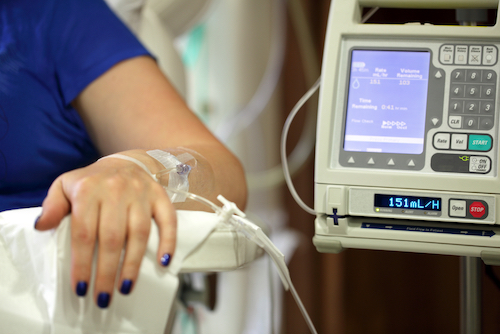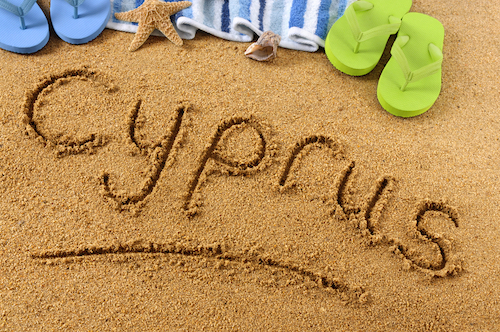To register with the health system in Cyprus, you have a number of options based on the public and the private system. Health insurance in Cyprus is organized on a two-tier system, comprised of both public medical insurance, which is not mandatory, and private cover.Public care is cost-effective or free at the point of delivery, especially if you are an EU citizen. Private care is relatively inexpensive. In general, healthcare in the Greek section of the island is considered to be of a higher standard than that of the Turkish region; and in the north, you will have to take out private cover.
Registering With The Public Health System In Cyprus
As an expat, you will need to register first with the Ministry for the Interior, to set your residency in motion, and then sign up for state medical insurance, whereupon you will receive a healthcare card. The Ministry will put you into one of three sections:
• those who are entitled to free healthcare
• those who will need to pay a small fee
• those who will need to pay the full cost of treatment
This categorization depends on your income, any pre-existing conditions, and whether or not you have children.
If you are working for a company based in Cyprus, your employer should sort out your insurance for you, but make sure that they have done so. Cyprus is currently overhauling its health insurance system, having decided to establish a National Health Service (Gesy).
Under these new regulations, in order to be eligible for healthcare, those in employment/self-employment and retirees will have to pay a compulsory contribution into the system. This was due to start in March 2019, and the percentage will rise again in 2020, when it is planned that the system will be fully operational.
Contributions from 1 March 2020 will be:
• 2.65% for employees and pensioners
• 2.90% for employers
• 4.70% for the government
• 4% for self-employed people
You will be covered under the national insurance scheme if you are a retired expat from another EU nation. If you are a British expat, you will be eligible if you in receipt of:
• an exportable UK State Pension
• a contribution-based Employment Support Allowance
• another exportable benefit
You will need an S1 form.
If you are from an EU member state, your EHIC card will entitle you to treatment, if you have one, but it is not intended as a substitute for comprehensive health insurance. You will not be able to use your EHIC in the Turkish part of the island.

If you are not from the EU, and not making contributions, you will need to take out private health cover.
Note that many private insurance policies stop when you reach the age of 70.
Registering With A Doctor In Cyprus
Cyprusdoctors.com have a list of GPs in the Greek part of the island, including the main centres of Nicosia, Limassol, Larnaca, Famagusta and Paphos. In addition, knowyourdoctor.com also has listings covering GPs, dental practices, hospitals and clinics.
The Cyprus Dental Association will be able to provide you with information regarding your local dental practice: Cyprus is a destination for dental tourism, as treatment is of a high standard, and cheaper than elsewhere. Basic dental treatment will be covered under Gesy.
Co-payment costs under the new system are estimated as follows:
• per pharmaceutical product: €1
• per medical device or sanitary article: €1
• laboratory examination or laboratory test group: €1
• visiting a specialist (there are some exceptions): €6
• per health care service in radiology / radio diagnostics: €10
• per visit to a nurse or midwife: €6
• per visit to another healthcare professional: €10
Access to GPs and inpatient services will be free at the point of delivery, unless you exceed the number of visits per year determined by your age group, or you are exempt (for instance if you have a chronic illness). The planned excess fee will be €15-20 per visit.

If you do not have an income – for example unemployed people, children, students and soldiers – you will still have equal access to healthcare services.
The annual co-payment ceiling is set at:
• general population: €150
• low income pensioners, Recipients of Guaranteed Minimum Income Benefit, and children: €75
Not every doctor speaks English. The standard of medical professionalism among personnel in Cyprus is, however, considered to be very high.
If you are eligible for the national scheme, you will be covered for:
• basic medical care
• specialist care
• hospitalisation
• laboratory work
• maternity care
• mammograms
• appliances
• transportation
• some prescriptions
You can also buy ‘stamps’ for costs for lab tests and medicines – these are vouchers from €.50 up to €10.00. You can get these from hospitals, medical centres or the post office.

If you are suffering from cancer or a severe blood disorder, you may need to be sent for treatment to Germany or Israel. If this happens your costs will be covered by your insurance.
Signing Up For Private Health Insurance In Cyprus
If you don’t qualify for public health insurance, or opt not to register with the system, you have a choice of out-of-pocket payments or private cover. Some examples of out-of-pocket costs for basic treatment are as follows:
• GP visit: €50
• one-day stay in hospital (without treatment): €150-200
• 3-4 day hospitalisation for giving birth: €2000-3000
• pediatrician’s services (birth and 6-7 consultations ): €400-500
You may have to opt for private cover if you are a higher earning expat: Cypriot state health cover is based on income, and residents who earn more than €37,590 have to pay the full cost of treatment. Therefore, expats with a higher income often take out private medical insurance.
As with other private schemes, taking out private cover can allow you quicker access into the treatment system: Cyprus’ public health system, as in most other European nations, sometimes has long waiting lists. You can either choose international cover – perhaps extending existing health care plans from your home country – or go with a local private provider, which is likely to be cheaper. In addition to speed and comfort, private insurance will cover you for treatments such as:
• Cosmetic surgery
• Advanced dental treatment
• IVF treatment
You may still need to pay for treatment upfront, but will then need to contact your provider to be reimbursed. You do not necessarily need to tell them beforehand that you are going in for treatment.
Would you like to share your experience of life abroad with other readers? Answer the questions here to be featured in an interview!

